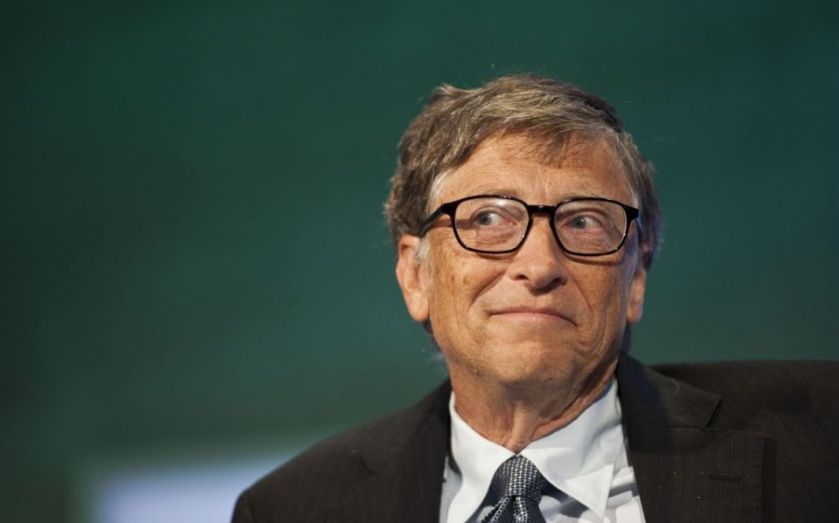The world in 2030: Bill Gates’s prediction for global change over the next 15 years

It's impossible to predict exactly how innovations will have changed the world by 2030, but there are few people better equipped to hazard a guess than Bill Gates.
The philanthropist and co-founder of Microsoft told The Verge he believes four key changes will take place globally over the next 15 years, in terms of how we live, learn and make payments.
“We think some very dramatic improvements will be made,” he said.
Healthcare will improve drastically
Healthcare has been heavily invested in, and Gates expects some major breakthroughs relatively soon, not least two key new vaccines that he believes will cut global infant mortality rate from one in five to one in 40.
“We are developing one for diarrhoea called rotavirus and one for respiratory disease called pneumococcus,” he explained.
“Those two alone will save over half a million lives, and that's why we think we can go from the 20 per cent – the one in five who die before they are five – to one in 40 [people] 15 years from now.”
Educating farmers will double food productivity
Gates heralds the “extension system” of educating farmers in developing countries as the key to bringing agricultural productivity up, and believes rich countries providing poor countries with seeds at lower prices will aid this.
“You need better seeds, you need farmers to adopt the best seeds, and the farmers have got to be a lot more educated in terms of growing them. If they don't have enough money to get fertiliser, that alone will cut their productivity substantially.
“By managing those things well, we predict we will get African productivity up to 1.5 times what it is today, and that we will get Africa to the point where it can feed itself.”
The global population is both growing and changing its eating habits at such a rate that almost double the current amount of food will be required to feed it by 2050, he believes.
“As people eat more meat, there's an inefficiency where you have to grow more gain to create the equivalent calories in meat,” Gates explained.
The focus on Africa is partly because of its huge expanses of unused land and party because its current productivity is much lower than it could be.
“Many of the poorest people in the world are African farmers, so getting their productivity up to give them more food while also meeting increased global demand will be a huge win-win.”
The digitisation of banking will save money for more people
Mobile transactions and micro-payments will offer the world's poor better access to financial institutions and credit systems, even if problems like regulation aren't solved by then, according to Gates.
“ATM machines and bank tellers are money-losing in the old system – even on a 50 cent transaction you can have a two cent fee,” he said.
He explained that in the digital realm, these economic losses can be avoided: “We can take and build a debit card equivalent that's just a cellphone, as we have already seen in a few pioneering countries like South Africa.
“There's a need for a utility-type service that lets you move money when you want to pay someone else or pay a store, so that you can pay no matter whether they use same bank as you.
“Digital infrastructure is going to help the African farmer to do things like set aside some of the money earned to buy seed again next year.”
Online education will improve – and be available for all
Not only is more of the world's population gaining access to digital platforms on a daily basis, the quality of online learning is improving rapidly.In 15 years the material on offer will be “wildly better” than anything available today, and all available through phones and tablets.
“Online learning will dramatically improve education in developing countries,” explained Gates. “It makes it easier for students and teachers to connect.”
“We are not yet at the point of providing the world's best teacher, who can see when you're confused and set the right pace for you, but 15 years ago we were just sticking videos online and claiming that was the solution.
“It won't replace face-to-face social contact, but it will play a huge role in helping students catch up and get ahead, as well as overcoming any limitations related to class size.”